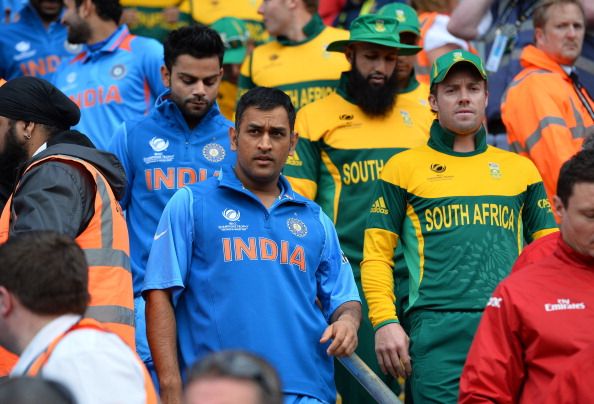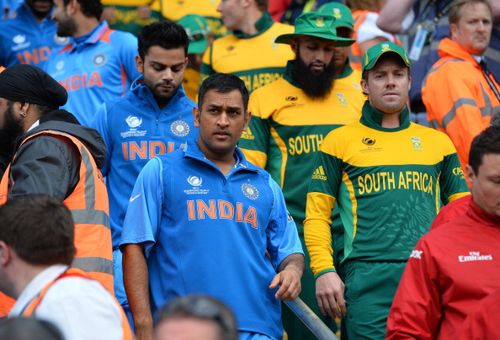
ICC Champions Trophy 2013: Battle of the benches!

636 runs, 17 wickets, a maiden ODI hundred and a diamond duck – The Champions Trophy kicked off with a bang with an eventful encounter between India and South Africa. Though South Africa went in the game as favourites, the current number one ODI side nudged passed the Proteas with a superior display of all-round cricket.
Even though South Africa put on a brave chase on the field, yet some unnerving questions would create a few furrows on the foreheads of both coaches. The teams wielded their willow power and displayed their batting depth but their bowling units certainly unearthed a few skeletons buried in the closet. If Rory Klienveldt and Lonwabo Tsotsobe went for plenty during the Indian innings, Umesh Yadav and Ishant Sharma had their share of suffering after the interval. Although an Indian bowling attack being carted for runs isn’t breaking news, but when a side that is known for their wicket-taking ability is taken to the cleaners, a few eyebrows are bound to rise. The Indian seamers looked ordinary but the South African pacers were, at best, pedestrian. Agreed, the absence of Dale Steyn and the injury to Morne Morkel stung them badly, but shouldn’t a side like South Africa be better equipped to deal with a situation like that?
The last time the Champions Trophy was played, in 2009, the teams looked different. Even in the last ICC tournament, the World Cup 2011, India had Sachin Tendulkar, Zaheer Khan, Virender Sehwag and Harbhajan Singh guarding their ranks while Australia boasted of Ricky Ponting, Mike Hussey and a fit Michael Clarke. South Africa had Graeme Smith at the helm with Jacques Kallis as the back bone whereas Pakistan’s artillery comprised of Younis Khan, Abdul Razzaq and Shahid Afridi.
Now, in 2013, the Old Guards have been replaced by the New Order. A few retired while the rest were shown the door. These names mostly feature in the “We miss you” updates on Facebook pages and this Champions Trophy has become a fight between the bench strength of each side.
Bench strength signifies the depth of talent in a team. The best teams in the world not only have incredible talent, but also the depth to readily adapt to unforeseen circumstances. The teams with the deepest bench often win championships because they can overcome injury, fatigue and various unknowns. Every team in this world, irrespective of the sport, needs to develop the next generation of players if they want to survive; let alone thrive. Managing the gulf between the first team and the reserves is the key to ensuring consistency which in turn translates into success.